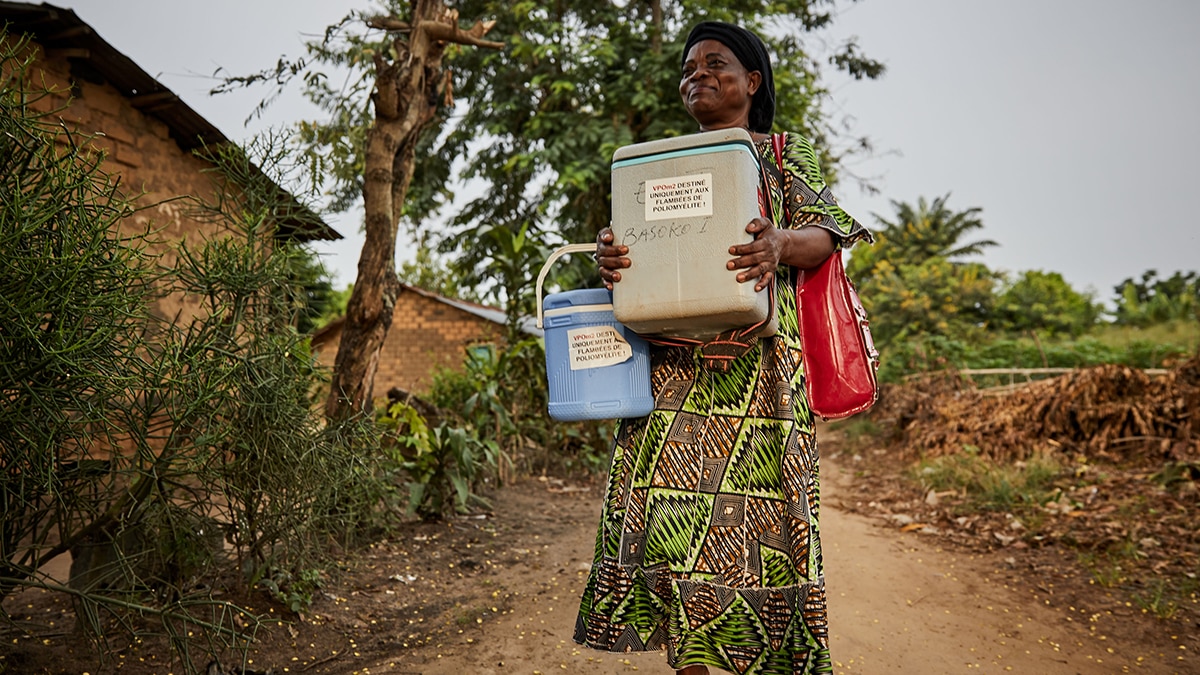Key points
- The STOP Program recruits and trains international public health consultants and deploys them around the world.
- Consultants strengthen surveillance programs, support supplemental immunization activities, respond to outbreaks, and support polio eradication.
- The program is run by CDC in collaboration with the WHO and UNICEF.

Background
Did you know?
Since it began 25 years ago, the STOP Program has recruited, trained, and deployed nearly 2,500 international public health professionals to more than 80 countries. They work across all six World Health Organization (WHO) regions:
- Africa
- The Americas
- South-East Asia
- Europe
- Eastern Mediterranean
- Western Pacific
The first STOP team had 25 participants, all of whom were CDC staff members. Over time, people from around the world have been increasingly involved in the program.
In 2024, STOP has 140 consultants in 25 countries in Africa and the Eastern Mediterranean region working to fight polio and other vaccine-preventable diseases.
Many STOP alumni go on to public health leadership roles in their home country, WHO, CDC, and other organizations.
The program is run by CDC in collaboration with the World Health Organization (WHO) and United Nations Children's Fund (UNICEF).
Why it matters
STOP helps countries protect against VPDs.
In the countries where they work, STOP consultants build local capacity to strengthen immunization systems and VPD surveillance.
In addition to vaccination activities to mitigate and contain VPD outbreaks, key areas of focus include:
- Active and passive surveillance
- Health education and communication
- Immunization policy guidance
- Outbreak response activities
- Data management and analysis
- Community engagement
- Social mobilization
STOP consultants make critical contributions to polio eradication and other VPD elimination and control efforts in countries around the world. At the same time, they have an opportunity to gain international public health leadership experience.
STOP can also be a valuable career advancement opportunity. Many alumni secure positions in global public heath institutions including non-governmental organizations and ministries of health after they complete their assignment.
